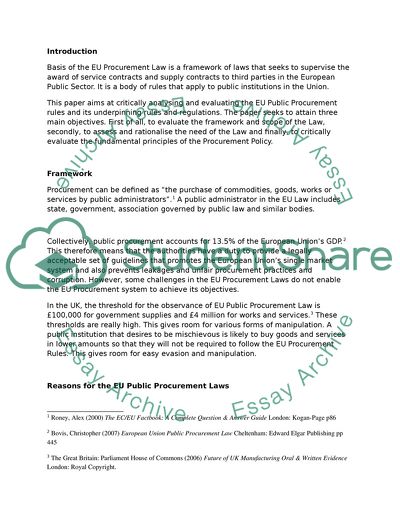Cite this document
(The European Union Public Procurement Laws - Background and Underlying Case Study - 1, n.d.)
The European Union Public Procurement Laws - Background and Underlying Case Study - 1. https://studentshare.org/law/1752629-identify-and-critically-assess-the-principles-which-underpin-the-eu-public-procurement
The European Union Public Procurement Laws - Background and Underlying Case Study - 1. https://studentshare.org/law/1752629-identify-and-critically-assess-the-principles-which-underpin-the-eu-public-procurement
(The European Union Public Procurement Laws - Background and Underlying Case Study - 1)
The European Union Public Procurement Laws - Background and Underlying Case Study - 1. https://studentshare.org/law/1752629-identify-and-critically-assess-the-principles-which-underpin-the-eu-public-procurement.
The European Union Public Procurement Laws - Background and Underlying Case Study - 1. https://studentshare.org/law/1752629-identify-and-critically-assess-the-principles-which-underpin-the-eu-public-procurement.
“The European Union Public Procurement Laws - Background and Underlying Case Study - 1”. https://studentshare.org/law/1752629-identify-and-critically-assess-the-principles-which-underpin-the-eu-public-procurement.


